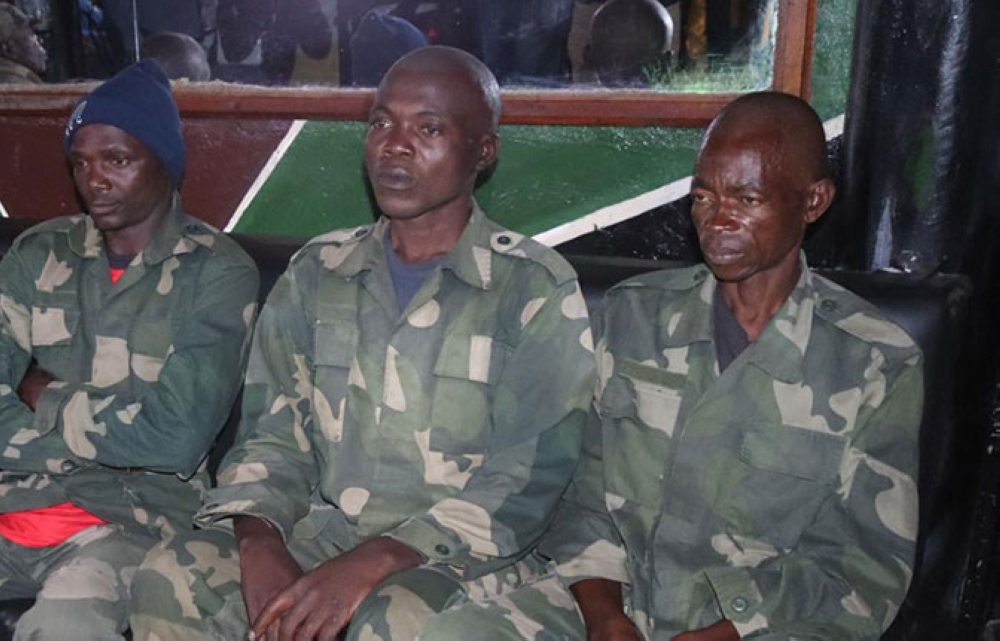

Since I called out Congolese President Felix Tshisekedi’s justification of the murders, rapes, and overall thuggish behaviour of his government’s Wazalendo militia, things haven’t gotten better in eastern DR Congo; they’ve gotten worse. It seems as if not a single day goes by without another dead body materializing somewhere in Goma, the capital of the country’s North Kivu Province, or its immediate environs.
The city’s residents are telling anyone who will listen that these Wazalendo, armed to the teeth and desperate for money and loot, are killing and robbing them with impunity while the police and army, mandated to protect civilians, either proclaim their powerlessness or get in cahoots with the Wazalendo, a group comprising FDLR, Mai-mai and Codeco militia as well as jobless drug-addled young people.
And as Goma burns, more and more Congolese join the Alliance Fleuve Congo (AFC), the rebel movement that brings together M23 and Corneilla Nangaa’s Action pour la Dignité du Congo et de son Peuple (ADCP). What is M23 doing as this happens? Consolidating its positions in the various places it has captured.
As all of this happens, the leadership in Kinshasa seems to be frozen in place. The newly announced prime minister, the elegantly coiffed Judith Suminwa Tuluka, is doing nothing more than twiddling her thumbs in a five-star hotel room as financial scandals, one after the other, are unearthed.
ALSO READ: Secret financial audit exposes high-level corruption fuelling eastern DR Congo conflict
With all these issues, you’d have thought that the cabinet resolutions read by Patrick Muyaya, DR Congo’s communication minister, on April 19, would’ve recognized the myriad of challenges the Congolese people faced. You’d have been wrong to think so.
What Muyaya announced was a presidential decree ordering the Ministry of the Interior to work on the regulation of the breeding of ‘dangerous’ Pitbull and Boerboel canine breeds. It’s all good and well to regulate dangerous animal breeds, but you cannot do that and then ignore the biggest, most dangerous ‘breed’ in the country, the rabid FDLR.
Dog owners know that the first thing they need to do when they get a new animal is to vaccinate it against rabies, a disease that not only can kill dogs but humans as well. The FDLR, and the genocide ideology that fuels their terrorist group, are like a dog with rabies. They will not only eventually die of the disease; they will kill any dog or human they come in contact with. And to make matters worse, the dog they bite also gets rabies as well. Once it has rabies, there is no cure. The dog MUST be put down.
Rwanda’s leadership has wisely chosen to do all they can to keep the rabid dog far, far away from its people and, as a result, citizens are able to go about their business with nary a worry in mind.
In contrast, DR Congo has not only allowed the rabid FDLR to move about freely, they’ve embraced the dangerous animal, giving it food, drink, and allowing it to play with the other family dogs. Guess what? The family dogs (DR Congo’s security apparatus) now suffer from rabies, and as a result, are terrorizing and killing their veritable owners.
Congolese leaders at the highest level like to parrot the line that ‘FDLR kills more Congolese than Rwandans’ but then never ask themselves why that is the case. In fact, just the other day, Major General Sylvain Ekenge, the Congolese army spokesperson, said, and I quote, "the FDLR threat weighs more heavily on the Congolese than on the Rwandans... since the FDLR arrived, how many times have they attacked Rwanda?”
General, perhaps if you didn’t arm, feed, share intelligence with, and pay the salaries of FDLR fighters, maybe the burden of Congolese would be less. If you didn’t swallow wholeheartedly the genocide ideology of the FDLR, your own army officers with so-called Tutsi features wouldn’t be burnt alive and cannibalized by mobs. If you didn’t use them to fight your wars, perhaps your army would have had the experience and ability to defeat the over 150 armed groups that call North Kivu and South Kivu home. And if you had kept them at arm’s length, you perhaps wouldn’t have had hundreds of thousands of your countrymen and women living as refugees all over the world. And perhaps Goma wouldn’t be in such a state.
President Tshisekedi, by all means, do whatever you must to keep people from harm’s way and regulate violent dogs.
But don’t stop there; put down the most dangerous dog of them all, the FDLR. Because if you don’t, don’t be shocked when that dog then turns on you.
The author is a socio-political commentator


